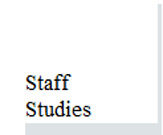
Staff Studies
 |
172 Using Subordinated Debt as an Instrument of Market Discipline Federal Reserve System Study Group on Subordinated Notes and Debentures December 1999 |
Summary: A growing number of observers have proposed using subordinated notes and debentures (SND) as a way of increasing market discipline on banks and banking organizations. Although policy proposals vary, all would mandate that banks subject to the policy must issue and maintain a minimum amount of SND. In recent years, the perceived need for more market discipline has derived primarily from the realization that the increasing size and complexity of the major banking organizations has made the supervisor's job of protecting bank safety and soundness ever more difficult. A second important motivation is the desire to find market-based ways of better insulating the banking system from systemic risk. In light of the ongoing interest in using SND as an instrument of market discipline, in mid-1998 staff of the Federal Reserve System undertook a study of the issues surrounding an SND policy.1
The study begins by carefully defining market discipline, discusses the motivation for and theory
Because the overall purpose of the study is to conduct a broad
review and evaluation of the issues, no policy conclusions are
advanced. However, the overall tone of the study suggests that a
properly designed SND policy is operationally feasible and would likely
impose significant additional market discipline on the banking
institutions to which it applied. In addition, the study makes clear
that
1. This study was completed in May 1999, before enactment of the Gramm-Leach-Bliley Act in November 1999. That act requires that the Federal Reserve Board and the U.S. Department of the Treasury
conduct a joint study of the feasibility and appropriateness of
requiring large insured depository institutions and depository holding
companies to hold a portion of their capital in subordinated debt. The
joint study must be submitted to the Congress within eighteen months of
the date of enactment. Return to text
Full paper (878 KB PDF)
Footnotes
Home | Economic research and data | Staff Studies
Accessibility
To comment on this site, please fill out our feedback form.
Last update: May 29, 2002